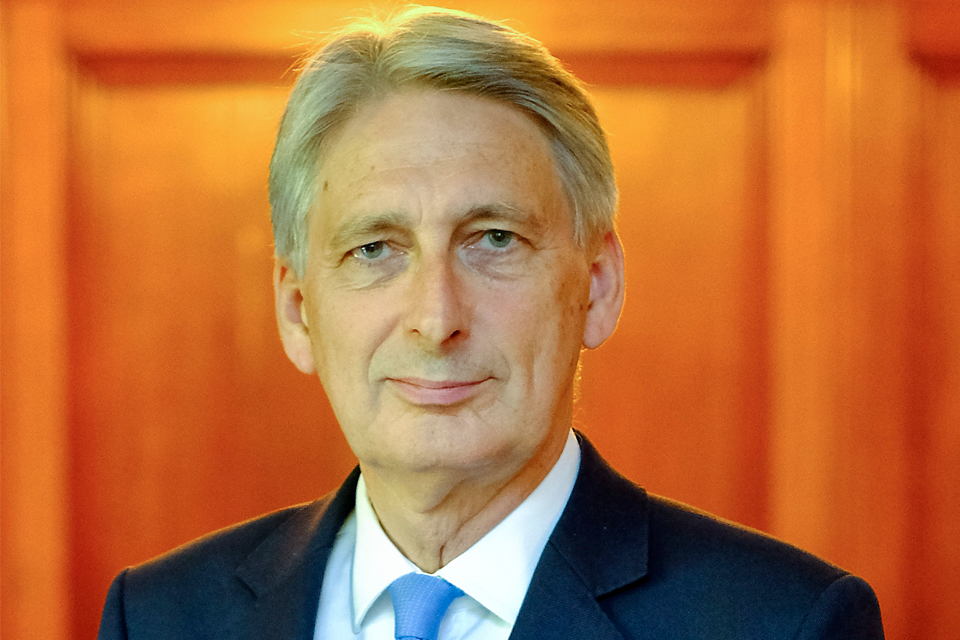Defence Council annual reception
Speech by Philip Hammond, Secretary of State for Defence.

Ladies and gentlemen, it is a great pleasure to welcome you this evening in these magnificent surroundings of Lancaster House.
And it’s a great pleasure to meet many of you here for the first time in my role as Defence Secretary.
I hope that you and your families are finding this a friendly and welcoming city in which to live and work.
Benjamin Disraeli once said that “London has a roost for every bird.”
So I hope you’ve found a few of those special little places that you will always remember fondly.
We host here in London one of the largest communities of defence attaches and advisers in the world.
And we’re proud of that.
It speaks to our history of international engagement and collaboration.
It speaks to the many decades, in some cases centuries, of close working with the countries you represent.
But it also speaks to our future.
We live, as the old saying goes, in interesting times, times of rapid change where it is difficult to predict with any certainty where the next threat will come from or where the next crisis will occur.
And in this new era, no country, no matter how powerful, can hope to protect its national security by acting alone.
This is an era in which partnership is necessary, not optional.
Of course the best partnerships are based on shared interests and shared values.
But the most successful partnerships are those which maximise agreement and minimise divergence by making sure there exists a thorough understanding of how each partner approaches issues and makes decisions.
That process may be driven by culture or tradition or national consciousness that it is difficult for outsiders to follow.
It may be driven by calculations of risk and gain.
It may even be driven by altruism.
Most often it is a combination of imperatives, pressures and personalities unique to each situation that drive policy and decision making.
One of the most fascinating parts of your jobs is to understand why it is the United Kingdom comes to the conclusions it does and to try an predict how we will react to any given situation.
The truth is, the more we understand one another, the more we reduce the capacity for mistakes, mistakes that in our line of work, where the security of our citizens are at stake, we cannot afford to make, let alone repeat.
I value hugely the work of our military attaches around the world. They add value not only to us, but to the nations who host them.
And so I have a great respect for the work that you do here.
Because it is of mutual benefit, to the countries you represent and to Britain too.
And this year there has been a lot for you to get your teeth into.
We have had to take a number of tough and finely balanced decisions to bring our defence programme towards balance.
Decisions similar to those many of our allies and partners are facing or may soon face.
But as we have demonstrated in both Afghanistan and Libya, we have done so without diminishing our ambition or capability to play an active and responsible role in the world.
We are a Permanent Member of the UN Security Council, a leading member of Nato, the EU, the G8, G20, and of course the Commonwealth.
We have the 4th largest defence budget in the world.
Our armed forces are among the best, most professional and most effective in the world.
But as Afghanistan and Libya also demonstrate, it will be a very rare situation in which we are compelled by our national security to act alone.
As our National Security Strategy sets out, action as part of a coalition, with allies and with partners, is by far the most likely, and most likely to be effective, way of working in the future.
That is why since the publication of our Strategic Defence and Security Review last October, we have signed three defence treaties, 26 Memorandums of Understanding and many other subordinate agreements between us.
These are designed to strengthen collaboration, joint working, information sharing, inter-operability and industrial co-operation with partners and allies.
And because of the benefits they bring, even in these financially difficult times we remain committed to our own network of defence attaches and advisers abroad.
As the Foreign Secretary has said, “Nothing will come to us by right, or by virtue of the past.”
Trust, co-operation, and friendship must be earned.
So for us this is about building credible, personal, and sustainable relationships that will stand the test of time.
I sincerely hope that your governments continue to value and support your role here.
It is our intention over the years ahead to grasp the opportunity that you represent, and to continue to build the partnerships that are necessary for success in this interconnected and networked world.
I think that you do a fantastic job here in London.
So ladies and gentlemen, let me take this opportunity, on behalf of Her Majesty’s government, to wish you and your families all the best for the year ahead.